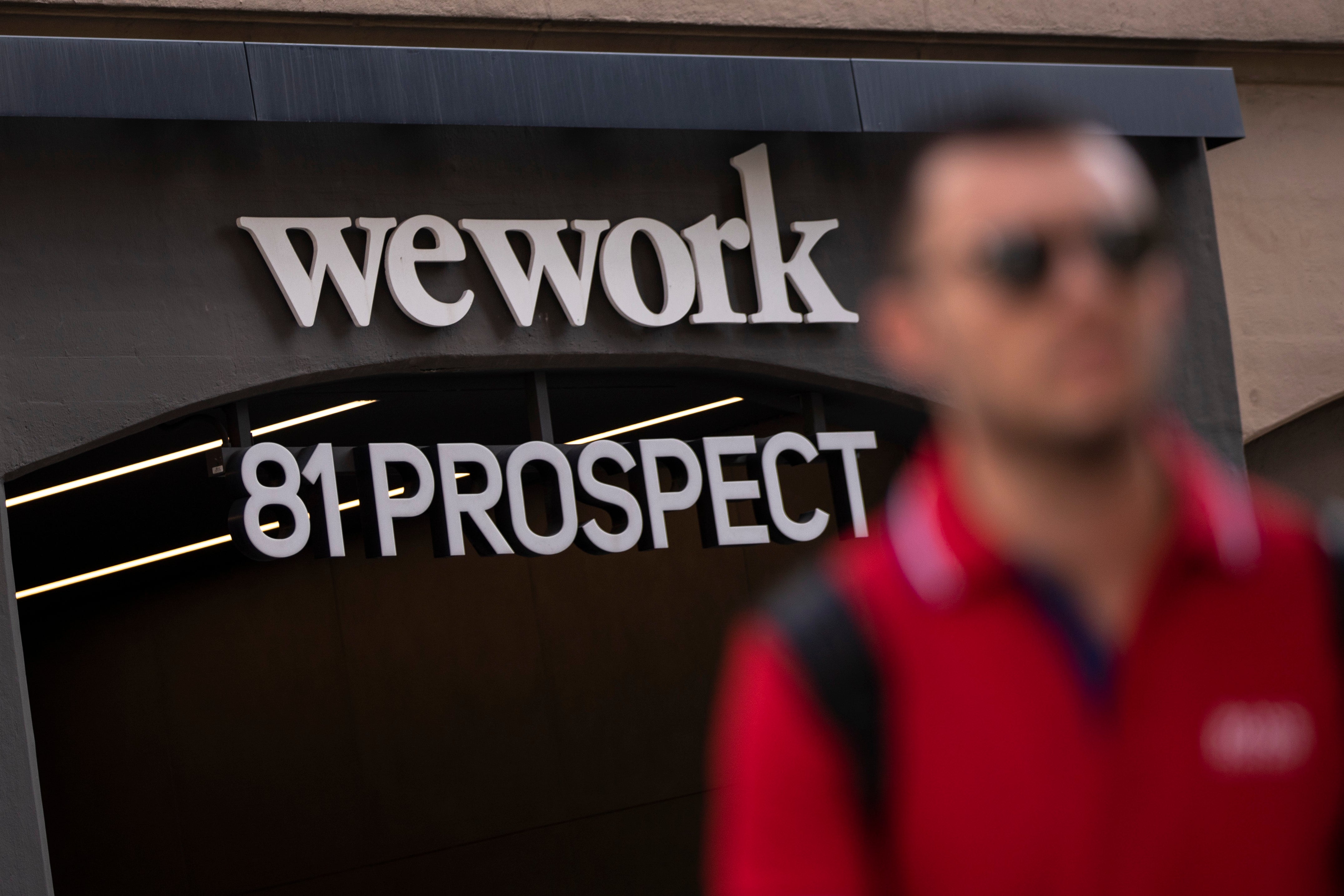In business it seems memories are short and comebacks easy
It’s been three years since Adam Neumann exited WeWork and he’s back already, writes Chris Blackhurst


It never ceases to amaze. How, in business, memories are short, how there is often room, unlikely as it is, for a comeback.
This week, Silicon Valley venture capital firm Andreessen Horowitz announced it was funding the new venture of Adam Neumann. Called Flow, the new company appears to be aimed at doing for rented living what his WeWork once promised for shared working. Neumann has bought stakes in more than 4,000 apartments across the US, and his intention is to create “a widely recognised apartment brand, stocked with amenities.” To help him on his way, Andreessen has invested $350m (£296m), “the largest individual cheque” it’s written for a start-up. The firm valued Neumann’s new hobby horse at more than $1bn (£850m).
Yes, this is the same Neumann, the long-haired, Israel-born entrepreneur who promoted WeWork with messianic zeal, driving it to a valuation of $47bn (£40bn) at its peak before the joint office space developer crashed. Today, WeWork is worth $4.2bn (£3.55bn). The founder, though, has long gone. After questions were raised about his management style and WeWork’s losses, Neumann exited with a package of more than $1bn, including $200m (£169m) in cash and called allegations that he profited while the company declined “completely false”.
That was three years ago. Now, he is back. “We love seeing repeat-founders build on past successes by growing from lessons learned,” gushed Marc Andreessen in a blog. “We think it is natural that for his first venture since WeWork, Adam returns to the theme of connecting people through transforming their physical spaces and building communities where people spend the most time: their homes. Residential real estate – the world’s largest asset class – is ready for exactly this change.”
I want what Neumann is having. Whatever it is, it’s truly miraculous. You build up and virtually collapse one company, then persuade a supposedly hard-nosed outfit that backed you previously to do the same again, to the tune of hundreds of millions of dollars. Wow.
Not that Neumann, presumably, will be in the least bit surprised. His good fortune is down entirely to his own brilliance. I met him when he launched WeWork in London and he spent the entire time attempting to convince me of his genius. He wasn’t just providing his clients with desks, where they could plot their own tech and creative ideas, he was transforming the entire global office culture, offering a whole new work-life balance. Said Neumann: “We treat [tenants] the way we want to be treated ourselves. For us and them, working is about much more than achieving material goods.”
They were not punters as such, but members. They had to apply to join, and they were vetted. “No call centres, we don’t want people who will just man phones and sell.”
WeWork was on a mission. Younger folk, Neumann declared, “switch nine jobs on average. What we’re doing is helping them find what they love doing”. He continued: “More and more people are working for themselves. Why? Because they want to do something more meaningful.” His objective, he said, wearing a serious expression, was “to change the world.”
Andreessen said the story of Neumann and WeWork had been “exhaustively chronicled, analysed, and fictionalised – sometimes accurately”.
For many of these people, increased screen time and reduced in-person interaction will cause challenges that are not just limited to work, such as alienation and loneliness
“For all the energy put into covering the story, it’s often underappreciated that only one person has fundamentally redesigned the office experience and led a paradigm-changing global company in the process: Adam Neumann,” he said.
It is unclear what exactly Flow intends. Its website consists only of a landing page with the words “Live Life in Flow” and “coming 2023”.
Andreessen indicated, however, that Flow would seek to reprise Neumann’s vision to create “dorms for adults”. He said that as result of the pandemic “many people will live in places far away from where they work and many more will shift to a hybrid environment”.
“As a result, they will experience much less, if any, of the in-office social bonding and friendships that local workers enjoy,” he said
“For many of these people, increased screen time and reduced in-person interaction will cause challenges that are not just limited to work, such as alienation and loneliness. This is not a good path for anyone and it needs to be addressed directly, right now.”
When I told Neumann that in my view what he was doing was not so special, that there was nothing to stop anyone from taking over an empty block and partitioning it up and doing the same, he disagreed. They would lack WeWork’s “secret weapon – we know how to provide exactly the right culture.”
He insisted I watch a video of WeWork’s New York members at a summer camp. They were wearing T-shirts and joggers, looking for all the world like they were part of an advert for J. Crew. They were sat on decks and around campfires, against a backdrop of lakes and big skies, strumming guitars. Beautiful people in a beautiful setting, welcome to WeWork. As I watched, Neumann murmured: “We want you to do what you love, to find the creative in you and let it out.”
Even if you concede that Neumann did revolutionise office working (arguably Regus had got there before, albeit without some of WeWork’s touches, although some of these were undoubtedly naff), the notion that he is deserving of such faith again is ludicrous to me. It will be interesting to see what lessons precisely he has learned – certainly reading Andreessen conveys a sharp sense of deja vu.




Join our commenting forum
Join thought-provoking conversations, follow other Independent readers and see their replies
Comments